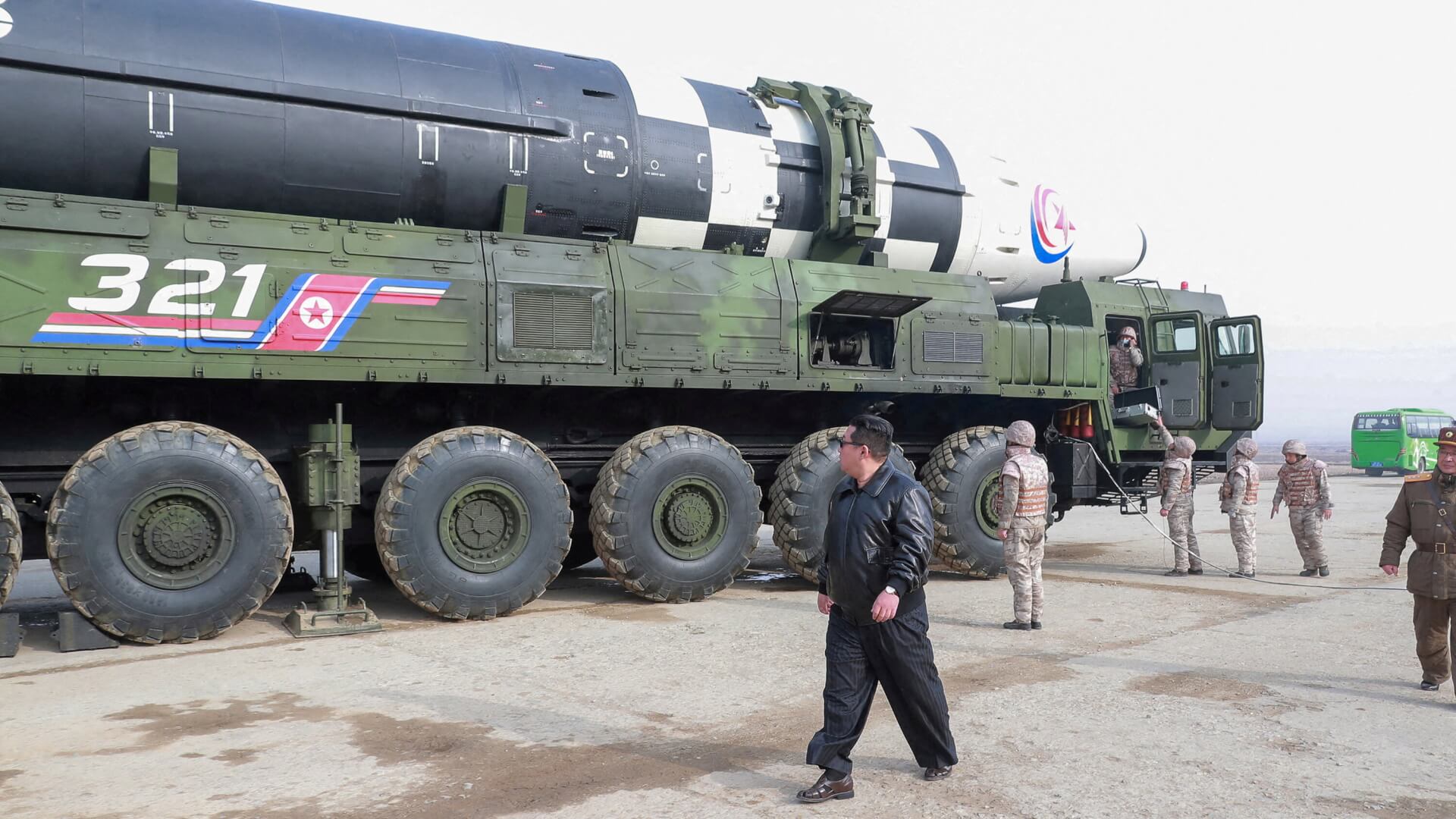The United States (US), Japan, and South Korea have announced a fresh round of coordinated sanctions against North Korea over its latest inter-continental ballistic missile (ICBM) test.
In a press release on Thursday, the US Department of the Treasury’s Office of Foreign Assets Control (OFAC) announced that it had levied sanctions on three officials affiliated with the ruling Workers’ Party of Korea (WPK).
It accused Jon Il Ho, Yu Jin, and Kim Su Gil of providing “support” to the country’s “development of weapons of mass destruction (WMD) and ballistic missiles.”
According to the Treasury, Jon Il Ho and Yu Jin played “major roles” in the Kim Jong-un administration’s development of WMD and also “personally attended numerous ballistic missile launches since at least 2017.”
Meanwhile, Kim Su Gil was sanctioned for serving as the director of the Korean People’s Army General Political Bureau from 2018 to 2021.
North Korea’s ICBM launch on 18 November was its eighth this year, and formed part of more than 60 ballistic missile launches it carried out this year. In total, it has conducted 18 ICBM launches in its history.
The Treasury noted that this was “clearly” in violation of multiple United Nations Security Council Resolutions (UNSCRs) and demonstrated “a continued threat to international peace and security.”
“Treasury is taking action in close trilateral coordination with the Republic of Korea and Japan against officials who have had leading roles in the DPRK’s unlawful WMD and ballistic missile programs,” remarked Under Secretary of the Treasury for Terrorism and Financial Intelligence, Brian E. Nelson.
“Recent launches demonstrate the need for all countries to fully implement UNSCRs, which are intended to prevent the DPRK from acquiring the technologies, materials, and revenue Pyongyang needs to develop its prohibited WMD and ballistic missile capabilities,” he added, referring to the abbreviation of the North’s official name, the Democratic People’s Republic of Korea.
US Secretary of State Antony Blinken said the move was taken because the secretive regime’s “destabilising actions pose grave security risks to the region and entire world.”
He stressed that the measure also underscores Washington’s “sustained resolve to promote accountability in response to Pyongyang’s pace, scale, and scope of ballistic missile launches.”
BREAKING: Kim Jong Un and his daughter took group photos with soldiers and scientists who contributed to last week's Hwasong-17 ICBM launch, state media reported Sunday. North Korea also awarded the launch vehicle the title of the "DPRK Hero" and promoted military officials. pic.twitter.com/Ix7P6fSXG1
— NK NEWS (@nknewsorg) November 26, 2022
Meanwhile, the South Korean Foreign Ministry imposed sanctions on eight individuals and seven institutions affiliated with Pyongyang’s nuclear programme and those involved in illegal ship-to-ship transfers of sanctioned North Korean goods.
Six of the sanctioned individuals belong to the North's Foreign Trade Bank of Korea, Korea Daesong Bank, and Kumgang Group Bank. The others are Singaporean national Kwak Kee Seng and Taiwanese national Chen Shih Huan.
Among the sanctioned companies, four are North Korean trade and shipping companies, including Namgang Trading Corp., and three are Singapore-based shipping firms.
The South Korean Ministry of Foreign Affairs said it has “been maintaining close coordination” with both the US and Japan in order to “strengthen the effectiveness of sanctions.”
“Our government will continue to strengthen cooperation with relevant countries to ensure a united and strong response by the international community, including additional sanctions, regarding North Korea’s grave provocations,” it noted.
Similarly, the Japanese Foreign Ministry said in a statement on Friday that it has taken steps against three organisations, including the Lazarus Group, which has been accused of carrying out large-scale cyberattacks, and one individual involved in “activities prohibited by UNSC resolutions.”
In August, The US sanctioned a virtual currency mixer called Tornado Cash, accusing it of helping North Korean hackers steal billions of dollars worth of virtual currency. This includes over $455 million stolen by North Korea’s Lazarus Group, a North Korean state-sponsored hacking group that the US sanctioned in 2019. In total, the FBI estimates that the Group has stolen upwards of $620 million in cryptocurrency.
Efforts to internationally condemn North Korea have been thwarted by Russia and China.
At an emergency meeting of the UNSC last month, China and Russia pushed back on efforts by the US to impose new sanctions against North Korea in light of its ICBM test.
Chinese ambassador Zhang Jun accused the US of lacking ‘sincerity,’ urging it to “put forward realistic and feasible proposals” that take into account North Korea’s “legitimate concerns.”
In fact, rather than impose new sanctions, he said UNSC members should play a “constructive role” and instead “ease sanctions.”
Similarly, Russian ambassador Anna Evstingneeva opined that the frequent large-scale military exercises by the US and its allies are ‘provocative’ and ‘dangerous.’ She accused Washington of attempting to force Pyongyang, noting that the most recent ICBM launch was preceded by a joint exercise between the US, South Korea, and Japan. She thus argued that Pyongyang’s actions were simply the result of Washington’s “short-sighted confrontational military activity.”
In September, North Korea passed a law that affirms its right to use pre-emptive nuclear strikes and makes the nuclear status “irreversible.” After the ICBM launch last month, however, the G7 reiterated that Pyongyang will “never” gain the status of a nuclear state.

